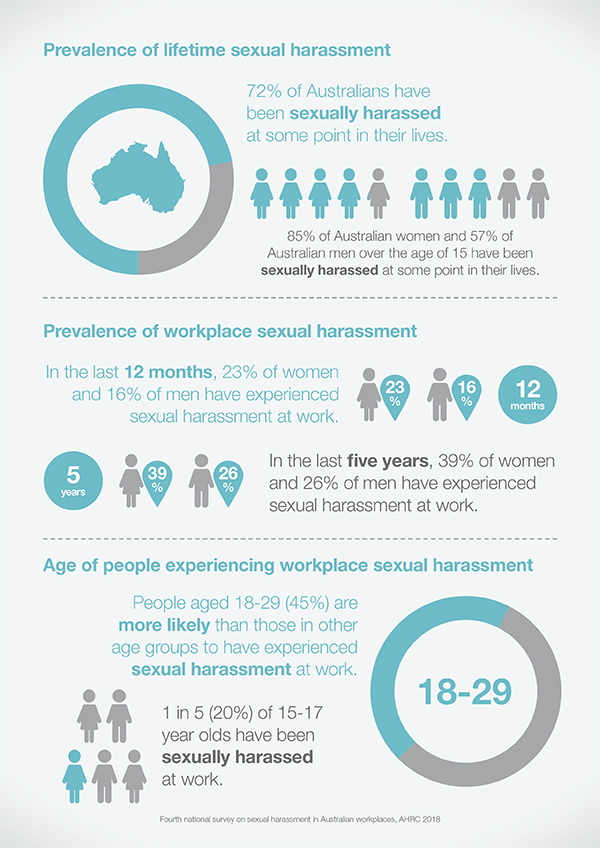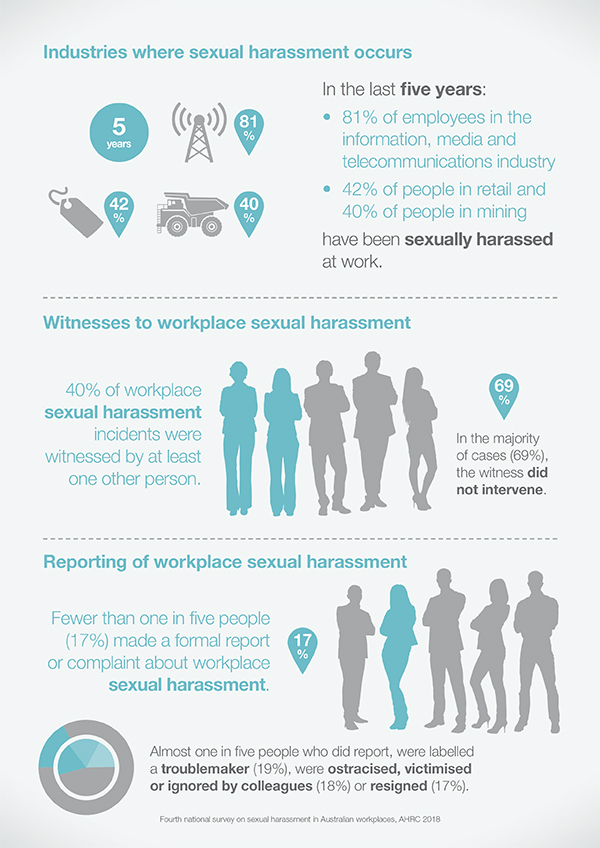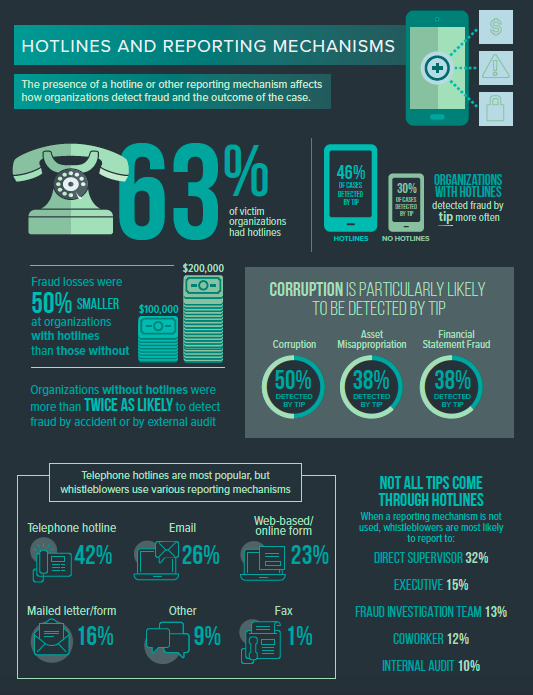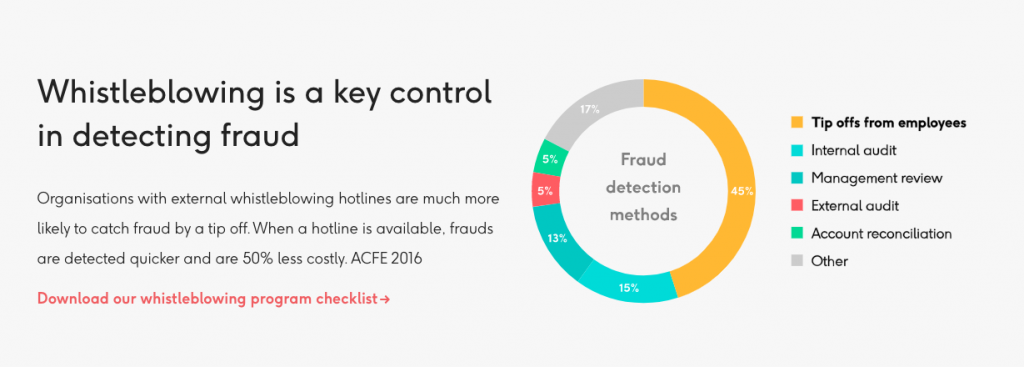Recruitment Marketing Magazine spoke with Nathan Luker, CEO for Your Call, Australia’s leading provider of whistleblowing programs. In this article, we explore how creating a positive, psychologically safe “speak up culture” boosts your employer brand and provides numerous other tangible and intangible benefits.
The Australian Human Rights Commission states that while 33% of Australians have experienced sexual harassment at work, fewer than one in five people (17%) make a formal report or complaint about it. And while more than one third (37%) of people have witnessed or heard about sexual harassment of another person at their workplace, bystanders reported the harassment to the employer in less than half of cases (47%).
Many talent leaders understand how a positive company culture attracts top talent, in the same way that a culture of discrimination or harassment acts as a deterrent. When employees feel unable to speak up about misconduct – whether that’s due to fear of being punished or simply not knowing who to speak to – this creates a fear-based culture that allows poor behaviour to continue, and in turn, negatively impacts your employer brand.
Nathan Luker, CEO and co-founder for Your Call, Australia’s leading provider of whistleblowing programs, shares the steps employers can take to establish strong ‘speak up’ cultures to help enhance their employer brand.

“Several years ago, I was trying to understand what makes organisations tick and what makes people mentally healthier. That’s when I discovered the devastating impact workplace wrongdoings, sexual harassment and fraud can have when they remain unnoticed. I then embarked on establishing Your Call.”
Your Call acts as a conduit organisation, planning, launching and managing ASIC-compliant external whistleblowing programs globally, allowing companies to operate at a higher ethical standard. They offer 24/7 reporting pathways, a disclosure management system, anonymous communication and an expert team. Clients signing on with Your Call provide them with full autonomy to obtain resolutions.
The company is based in Melbourne with Luker leading a team of 35 employees. There are several companies within the group, and team members are all passionate about helping people speak up. Your Call’s disclosure officers are all licensed investigators with varied experience in law enforcement, workplace behaviour, consulting, law accounting and GRC (governance, risk management and compliance).
What is a speak up culture?
“Speak up culture” refers to a healthy, supportive environment, where team members feel free to share their ideas, opinions and concerns, without fear of retaliation or penalty. Often people associate it with calling out toxic company culture or even an individual member of staff, however, it can also refer to people feeling comfortable to express different ideas or business models that have previously gone unexplored.


Not just for big global organisations
Creating a speak up culture benefits organisations no matter their size or industry. Although, Luker admits some sectors are more “high risk” than others, such as childcare, education, aged care and finance.
“How an organisation operates (globally, nationally, locally) doesn’t matter,” says Luker. “Any organisation that involves groups and individuals within a structure where vulnerability can occur can benefit. For example, if you’re a sole trader in an environment with no governance structure, and you need to speak up, who do you talk to? The owner? That can be challenging.”
In scenarios like this, people often suffer in silence, or leave, while major underlying issues remain.
Offering an external whistleblowing program typically benefits organisations with more than 50 people; these organisations care about creating a positive workplace culture and protecting their reputation and brand as an employer. Many government and not-for-profit organisations (sometimes under 50 people) rely on external whistleblowing programs, as they are governed by a board of directors, or simply have a broad structure. This also includes large retailers or fast food chains with a head office managing many stores.
“We allow people on the front line to see something and say something, and feel safe in doing so. This is the bedrock of stamping out misconduct, allowing organisations to represent what they stand for.”

How Your Call recruits the right team members
How does a whistleblowing organisation recruit people with the right behavioural attributes and unique skillsets?
“Because we’re trusted to deal with ethical issues, if we get our people wrong, that’s a big problem. We have a unique set of values, are a steward of ethics and have a strong vision and purpose. We have a strong commitment to the community and social environments. It’s the foundation of our being. When you have these things, it actually becomes really easy to make hiring decisions.
“We recruit people with blended backgrounds and experiences, such as people with psychology, legal, law enforcement or HR backgrounds. They’re typically high achievers, results-focused and caring. Our people are willing to undergo background checks (police checks, working with children checks, etc.), psychometric testing so we can understand their capabilities and decision-making under pressure, and we also ask them to address case studies, and ethics and moral challenges.”
Often, Luker receives applications from people who are in the second half of their careers and have extensive experience in the workforce and/or corporate world. These people have typically witnessed misconduct, are irritated by these experiences, and want to use their skills to make a positive impact on the world.
Anonymous employee surveys: An effective means of feedback?
According to Luker, anonymous surveys certainly have their place in obtaining employee feedback; but they’re not foolproof.
“Is it enough? Sometimes. Although, I can’t generalise. When it comes to allegations though, in most instances, the answer is no.”
Why? With serious allegations, many employees have a significant fear of losing their job and depend on their source of income. Typically, surveys are an avenue for employees to express everyday gripes. Leadership teams then often take actions that follow “procedural fairness”, protecting alleged perpetrators before taking any action. Sometimes leadership teams aren’t sure what action to take, respond in an unsatisfactory matter, don’t respond in a timely manner, or don’t respond at all. Generally, in the case of misconduct, employee surveys can lead to underreporting or people simply leaving the organisation when their issues aren’t addressed.
External whistleblowing programs give employees the opportunity to express themselves in a non-threatening setting and present their concerns and evidence. Callers have the option to nominate gender preferences, and speak to any number of specialists, for example, legal or financial specialists, or trauma-informed psychologists. It can be a long process, but the production of a high-quality report enables organisations to take action.
“Surveys are great for measuring trust,” says Luker. “Trust is a pillar of creating a positive, psychologically safe workplace. You can measure trust in different ways. This could mean asking if people have seen misconduct, then measuring how many reports of misconduct you have received. For example, if you receive a response rate saying 80% of your people have seen misconduct, but have only received reports from 20% of your employees, it’s an indicator there’s a low-trust environment.”
People’s willingness to speak up is at the heart for an employer to measure their level of preparedness to deal with wrongdoings and address the gap. The goal of offering whistleblowing avenues is to cultivate a high-trust environment.
“Things will always go wrong. But managing issues in an anonymous way is mission-critical to organisations wanting to protect their reputation and brand as an employer. They can trust that an external provider will follow the right policies and procedures correctly and issues will be addressed in a timely manner.”
The role of leadership
“It seems obvious to say change comes from the top. But it’s true in this matter. This type of change typically doesn’t rise from the bottom up. You need a strong leadership team who care about their organisation’s long-term success and are willing to take a proactive approach. That doesn’t mean just creating a policy or offering a whistleblowing service and sending it to your team. It requires an integrated approach. They need to understand their demographic, their needs, the champions in their organisation, and actively encourage people to speak up.”
This type of positive leadership filters down throughout organisational culture and lasts over the long term.
“In saying that, you need a bottom-up approach too. A great way to do that is by encouraging bystanders to use their voice. The Human Rights Commission shares that there is dramatic underreporting of wrongdoing. In most cases (approximately 70% on average), cases were not reported by bystanders.”
Not many initiatives focus on bystanders’ power to make a difference. This is not simply a matter of courage, but the “diffusion of responsibility”. People often think others will take action.
“We all know right from wrong, but for some reason, people have trouble speaking up due to fear, or the belief someone else will do it. Many psychological studies reveal people tend to react to situations differently in groups than when they are alone.
Once leaders create a framework, bystanders feel more encouraged to take action.
Improving your employer brand
Luker has witnessed organisations directly benefit from building a speak up culture and see dramatic improvements in their overall employer brand.
“To be a great employer, you need to create a healthy and psychologically safe workplace. I’ve seen organisations create positive change and reap the rewards, from drastic improvements in their Glassdoor feedback, to better results in their internal employee surveys. When organisations act on a speak up culture (and not just “have” it), that’s what matters.”
Like many aspects of employer branding, a speak up culture comes through every stage of the candidate journey; from an employer’s website, through to their office configuration, and hiring and selection process. When people join, their experience matches their expectations.
“It’s something that’s holistic and long term. Once you create a speak up culture, you can’t just ‘turn it off’. It’s omnipresent, and it remains even when key people, such as a CEO, leaves. Organisations with speak up cultures care about people. It’s in the way they conduct business. It’s the way they interview candidates. Culture and behaviour have clear benefits on employee engagement and culture. It’s the bedrock for these mechanisms.”
Additional benefits
A speak up culture has benefits that extend beyond employer branding. Luker reports organisations also experience financial improvements through increased productivity, lower employee stress levels and lower absenteeism.
“In addition to moral benefits, organisations who receive and act on reports of misconduct have a high-trust culture and perform better than other organisations financially.”
In fact, whistleblowing is a key control for detecting fraud.

These things, holistically, also help organisations develop better relationships and stronger trust with their partners and clients.
From better employer branding and employee engagement to improved financial outcomes, creating a speak up culture has numerous positive benefits for organisations. While employee engagement surveys play an important role in obtaining critical feedback from your people, they may not be adequate when it comes to cases of misconduct. The responsibility of creating change rests in the hands of proactive leadership teams. Organisations that build a culture of trust and care can expect to reap the benefits over the long term.
How do you foster trust and encourage people to speak up in your organisation? Share a comment below.

